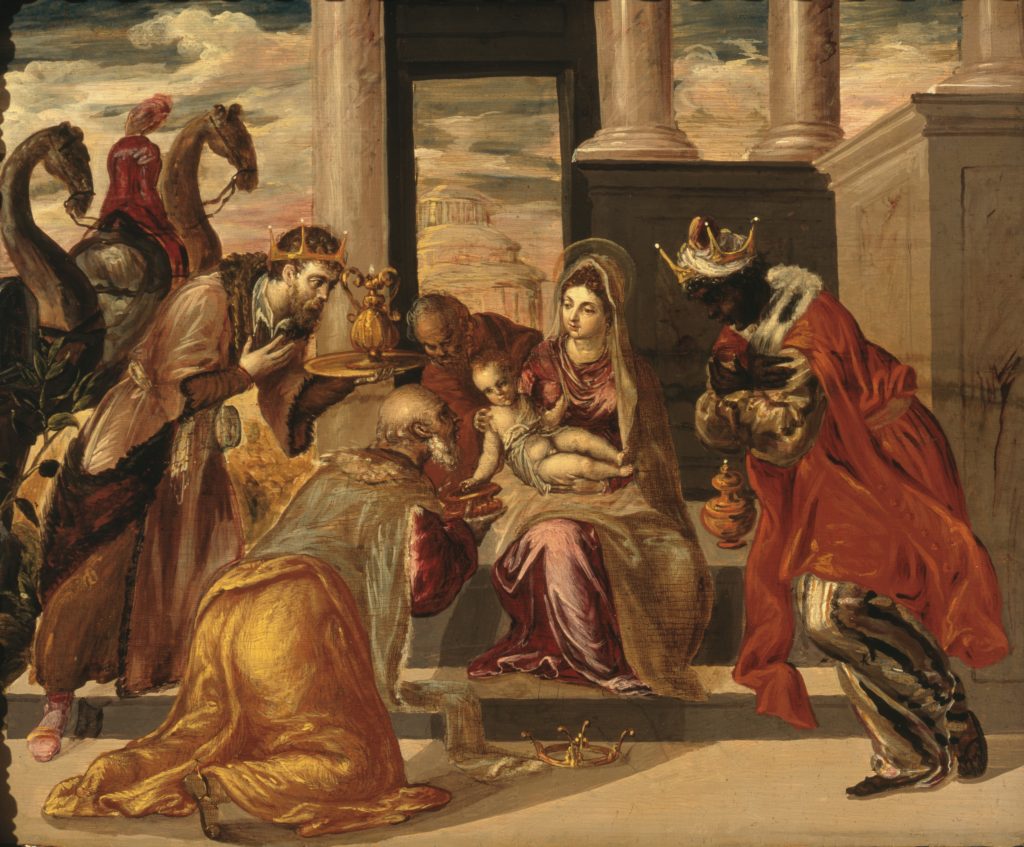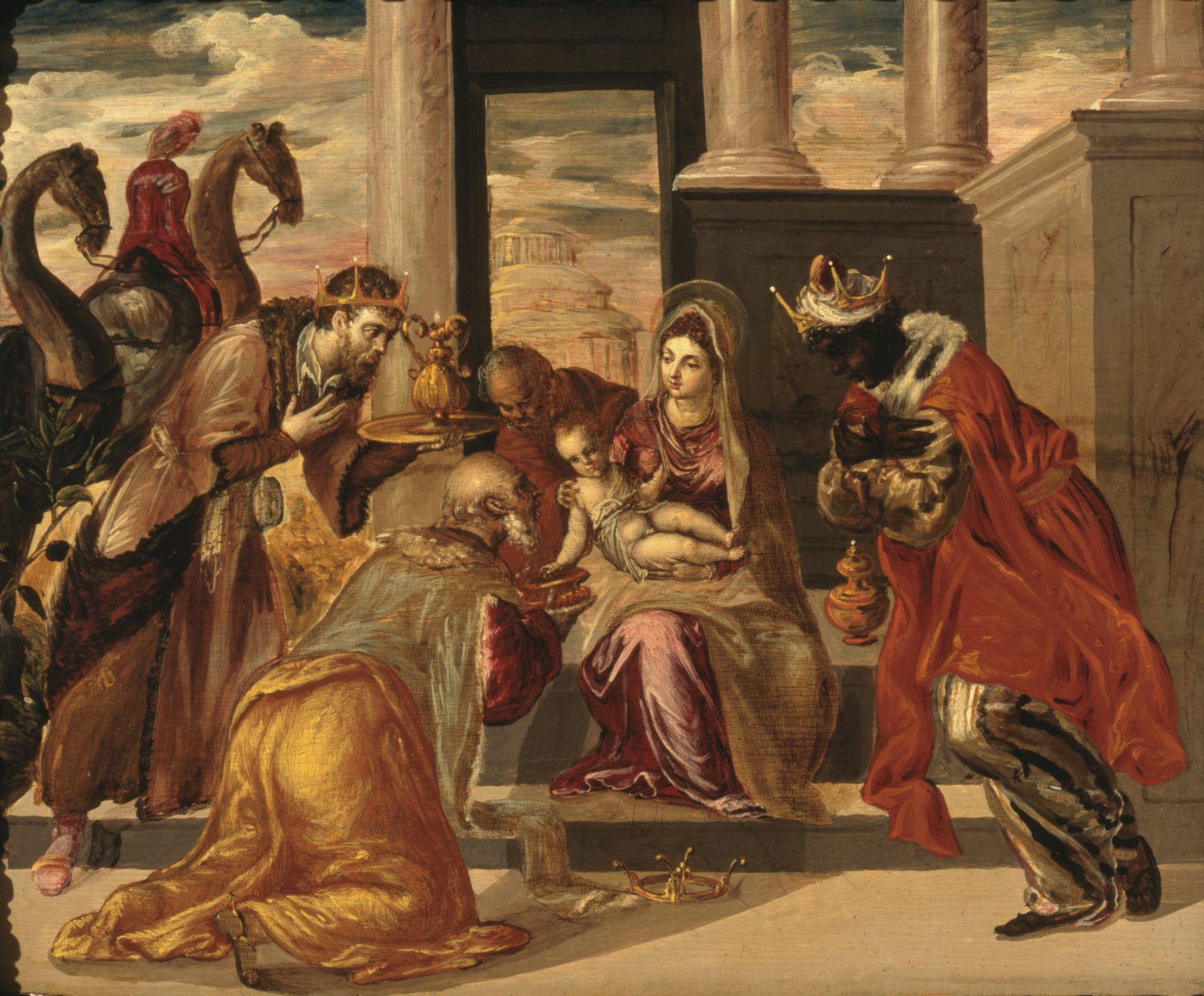
Matthew 2:11 ESV
And going into the house, they saw the child with Mary his mother, and they fell down and worshiped him. Then, opening their treasures, they offered him gifts, gold and frankincense and myrrh.
Legends have been busy with the wise men. In the early days eastern tradition said that there were twelve of them. But now the tradition that there were three is almost universal. The New Testament does not say that there were three, but the idea that there were three no doubt arose from the threefold gift which they brought.
Later legend made them kings. And still later legend gave them names, Caspar, Melchior and Balthasar. Still later legend assigned to each a personal description, and distinguished the gift which each of them gave to Jesus. Melchior was an old man, grey haired, and with a long beard, and it was he who brought the gift of gold. Caspar was young and beardless, and ruddy in countenance, and it was he who brought the gift of frankincense. Balthasar was swarthy, with the beard newly grown upon him, and it was he who brought the gift of myrrh.
From very early times men have seen a peculiar fitness in the gifts the wise men brought. They have seen in each gift something which specially matched some characteristic of Jesus and his work.
(i) Gold is the gift for a king.
Seneca tells us that in Parthia it was the custom that no one could ever approach the king without a gift. And gold, the king of metals, is the fit gift for a king of men.
So then Jesus was “the Man born to be King.” But he was to reign, not by force, but by love; and he was to rule over men’s hearts, not from a throne, but from a Cross.
We do well to remember that Jesus Christ is King. We can never meet Jesus on an equality. We must always meet him on terms of complete submission. Nelson, the great admiral, always treated his vanquished opponent?, with the greatest kindness and courtesy. After one of his naval victories, the defeated admiral was brought aboard Nelson’s flagship and on to Nelson’s quarter-deck. Knowing Nelson’s reputation for courtesy, and thinking to trade upon it, he advanced across the quarter-deck with hand outstretched as if he was advancing to shake hands with an equal. Nelson’s hand remained by hi.’ side. “Your sword first,” he said, “and then your hand.” Before we must be friends with Christ, we must submit to Christ.
(ii) Frankincense is the gift for a priest.
It was in the Temple worship and at the Temple sacrifices that the sweet perfume of frankincense was used. The function of a priest is to open the way to God for men. The Latin word for priest is pontifex, which means a bridge-builder. The priest is the man who builds a bridge between men and God.
That is what Jesus did. He opened the way to God; he made it possible for men to enter into the very presence of God.
(iii) Myrrh is the gift for one who is to die
Myrrh was used to embalm the bodies of the dead.
Jesus came into the world to die. Holman Hunt has a famous picture of Jesus. It shows Jesus at the door of the carpenter’s shop in Nazareth. He is still only a boy and has come to the door to stretch his limbs which had grown cramped over the bench. He stands there in the doorway with arms outstretched, and behind him, on the wall, the setting sun throws his shadow, and it is the shadow of a cross. In the background there stands Mary, and as she sees that shadow there is the fear of coming tragedy in her eyes.
Jesus came into the world to live for men, and, in the end, to die for men. He came to give for men his life and his death.
Gold for a king, frankincense for a priest, myrrh for one who was to die–these were the gifts of the wise men, and, even at the cradle of Christ, they foretold that he was to be the true King, the perfect High Priest, and in the end the supreme Savior of men.
